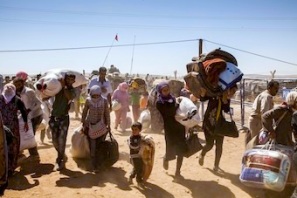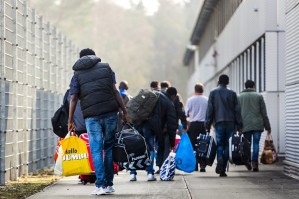 More than a million migrants and refugees crossed into Europe in 2015. Their increasing number over the past few years raises issues of a higher collective degree of awareness not only of the reasons behind their leaving the countries of origin and the overall changing patterns of migration, but significantly also on their condition in the countries of destination. This poses questions of respect of human rights, of how to provide a fair human treatment, of justice, of democracy, of shared values, of socio-economic cohesion, of integration into societies still ruled by obsolete legislations and marked by an increasing divide between the legislative activity and the people’s real needs and expectations, of biased media reporting, and of an escalating security issue, given that the attitude towards immigration are statistically significant factors correlating with terrorism and are stressing the underlying drivers of radicalization and lone wolf terrorism.
More than a million migrants and refugees crossed into Europe in 2015. Their increasing number over the past few years raises issues of a higher collective degree of awareness not only of the reasons behind their leaving the countries of origin and the overall changing patterns of migration, but significantly also on their condition in the countries of destination. This poses questions of respect of human rights, of how to provide a fair human treatment, of justice, of democracy, of shared values, of socio-economic cohesion, of integration into societies still ruled by obsolete legislations and marked by an increasing divide between the legislative activity and the people’s real needs and expectations, of biased media reporting, and of an escalating security issue, given that the attitude towards immigration are statistically significant factors correlating with terrorism and are stressing the underlying drivers of radicalization and lone wolf terrorism.
 According to the UNHCR, developing countries have long taken in a roughly 80 percent of refugees, a massive challenge for humanitarian agencies already overstretched, and too often unequipped to welcome refugees in countries that are still racked by conflict.
According to the UNHCR, developing countries have long taken in a roughly 80 percent of refugees, a massive challenge for humanitarian agencies already overstretched, and too often unequipped to welcome refugees in countries that are still racked by conflict.
To prevent and transform conflicts into a peaceful coexistence, a deeper understanding of these dynamics by all stakeholders is essential to build a dialogue among individuals and cultures, to promote and protect human rights, and foster financial inclusion and cultural-social integration.
